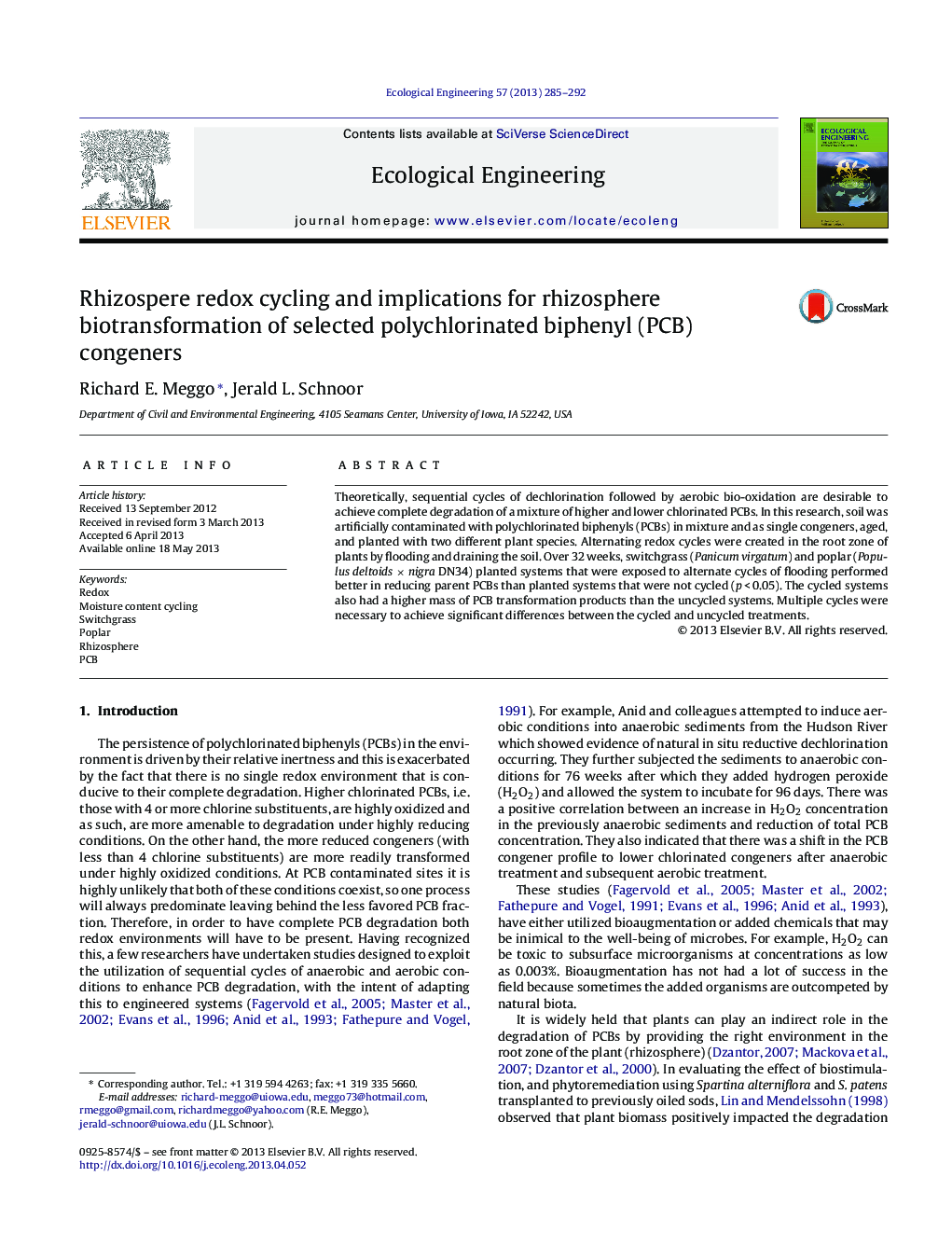| Article ID | Journal | Published Year | Pages | File Type |
|---|---|---|---|---|
| 6302626 | Ecological Engineering | 2013 | 8 Pages |
Abstract
Theoretically, sequential cycles of dechlorination followed by aerobic bio-oxidation are desirable to achieve complete degradation of a mixture of higher and lower chlorinated PCBs. In this research, soil was artificially contaminated with polychlorinated biphenyls (PCBs) in mixture and as single congeners, aged, and planted with two different plant species. Alternating redox cycles were created in the root zone of plants by flooding and draining the soil. Over 32 weeks, switchgrass (Panicum virgatum) and poplar (Populus deltoids à nigra DN34) planted systems that were exposed to alternate cycles of flooding performed better in reducing parent PCBs than planted systems that were not cycled (p < 0.05). The cycled systems also had a higher mass of PCB transformation products than the uncycled systems. Multiple cycles were necessary to achieve significant differences between the cycled and uncycled treatments.
Keywords
Related Topics
Life Sciences
Agricultural and Biological Sciences
Ecology, Evolution, Behavior and Systematics
Authors
Richard E. Meggo, Jerald L. Schnoor,
